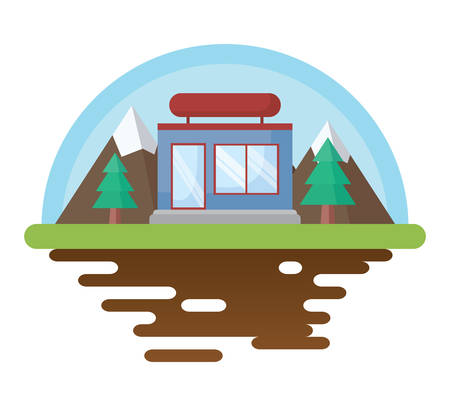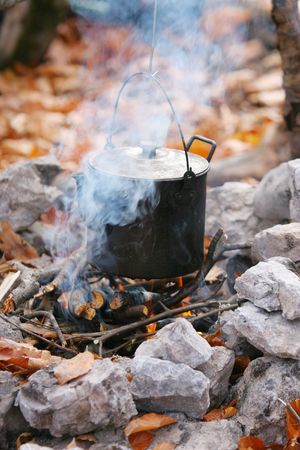Understanding the Causes of Tent Flooding in the UK
There is a certain magic to waking up in the heart of the British countryside, the air fresh with dew and the world wrapped in a silvery mist. Yet, as any seasoned camper will attest, this enchanting landscape comes with its quirks—chief among them, unpredictable weather. In Britain, tent flooding is more than a passing inconvenience; it’s a rite of passage. Torrential rain sweeping across open fields, persistent drizzle that soaks everything through, or even just a heavy morning fog can all conspire to leave your canvas sanctuary a soggy mess. The lushness of our green and pleasant land comes at a price: saturated ground that refuses to drain, puddles forming beneath your sleeping bag, and water seeping through seams you thought were watertight. Sometimes, it’s not just the sky but also the terrain—a low-lying pitch near a riverbank or on compacted earth—that turns your weekend escape into an impromptu wading exercise. Understanding these uniquely British challenges is the first step towards keeping your camp dry and cosy, no matter what the weather has in store.
2. Act Fast: Immediate Steps When the Water Creeps In
The British weather is notoriously fickle, and even the most seasoned campers have faced that sinking feeling when water starts pooling at their feet. When your tent begins to flood, there’s no time for dithering – quick thinking and a dash of classic British resourcefulness can make all the difference. Here are some tried-and-tested steps, straight from UK campsites, to keep you dry and your spirits high.
Assess the Situation
First things first: don’t panic. Grab your torch (flashlight) and check where the water is seeping in. Is it coming from a low-lying groundsheet, or dripping through seams above? Identifying the source lets you act with purpose rather than scrambling about blindly.
Swift Actions to Minimise Damage
| Action | Why It Matters |
|---|---|
| Move Gear Off the Ground | Keep sleeping bags, clothes, and electronics away from water – stack them on camping chairs or in waterproof bags. |
| Create a Makeshift Barrier | Use spare towels, jackets, or even a picnic blanket to absorb water at entry points and block further seepage. |
| Scoop & Bail | Channel your inner Brit and use a mug, empty food container, or even your welly (boot) to bail out standing water. |
Tactical Relocation
If the water’s rising fast and the forecast isn’t promising, consider shifting your tent to higher ground. British campsites often have gentle slopes; moving just a few metres can make all the difference. Don’t forget to inspect for new puddles before pitching again – nothing says ‘classic British holiday’ like a soggy tent moved twice in one night!
Morale Boosters: Keep Calm & Put the Kettle On
No matter how damp things get, never underestimate the power of a proper cuppa. Boiling water for tea not only warms chilly hands but brings everyone together for a moment of cheer amidst chaos. Share a biscuit (or three), swap soggy sock stories, and remember: every camper has braved a flood or two – it’s almost a rite of passage in Britain.

3. Salvaging Your Gear and Staying Dry
When the heavens open and your tent succumbs to a classic British downpour, it’s time for some clever salvaging.
Rescuing Soggy Sleeping Bags
First things first: whip out your microfibre towel—a staple in any UK camper’s kit—and blot as much water as possible from your sleeping bag. If you’re on a well-equipped campsite, dash to the laundry room and make use of tumble dryers. In wilder spots, hang your gear under the awning or from tree branches; even a fleeting spell of sun or that ever-present breeze can work wonders.
Dealing with Damp Clothes
Nobody wants to slip into soggy socks. Roll up damp clothes tightly in your towel to wring out extra moisture. Peg them up on a guy line or makeshift washing line—those trusty pegs and lines are essentials at every British site. If you have newspaper (a proper British touch), stuff it inside boots or shoes overnight to draw out the damp.
Local Wisdom and Quick Fixes
Seasoned British campers swear by bin bags—not just for rubbish, but as emergency dry bags for clothes and bedding. Layer up with thermals, which stay warm even when damp, and keep a stash of tea bags handy; nothing lifts spirits quite like a hot cuppa after a drenching. Remember, resilience is part of the adventure—embrace the puddles and make the best of Britain’s famously unpredictable weather.
4. Turning Setbacks into Warm, Cosy Moments
If the heavens have opened and your tent is more puddle than palace, take heart—British campers have long been experts at transforming soggy setbacks into treasured memories. There’s a certain magic in embracing the rain-soaked night with a sense of humour and togetherness. Many seasoned UK campers recommend leaning into the elements, letting laughter echo over the patter of raindrops, and finding small comforts in the midst of wet chaos.
Inspirational Tales from the Campsite
“We once spent an entire rainy night playing cards by torchlight,” shares Lucy from Devon. “The sound of rain on canvas became our evening soundtrack, and we ended up telling ghost stories until dawn.” Such moments turn adversity into adventure, revealing that camaraderie often shines brightest when skies are grey.
British Ways to Make the Best of a Rainy Night
| Cosy Activity | How It Lifts Spirits |
|---|---|
| Telling Stories by Torchlight | Sparks imagination and brings everyone together around a shared narrative |
| Drying Socks by the Fire | Creates warmth and comfort, plus the classic British satisfaction of dry feet |
| Brewing a Proper Cuppa | No storm can dampen spirits quite like a hot mug of tea; it’s a taste of home in wild places |
| Singing Favourite Tunes | The age-old remedy for dreary weather—belt out classics and let laughter lift morale |
Advice from Fellow Campers
Embrace flexibility: shift plans indoors or under shelter. Keep a stash of games or books for these moments. Above all, remember that every rainstorm carries its own story—one you’ll tell fondly around future campfires. In true British style, don’t forget to keep calm and carry on, finding joy in even the muddiest moments.
5. Preventing Another Flood: Lessons for Next Time
After weathering a midnight deluge in the Lake District or waking to puddles in Cornwall, every British camper knows that prevention is as crucial as rescue. As you pack away your soggy gear and relive the adventure over a hot cuppa, it’s time to plan for drier nights ahead. Here are practical lessons drawn from seasoned UK campers to keep you—and your tent—dry on your next trip.
Choose Your Pitch with Care
Location is everything. Avoid pitching at the foot of slopes or in dips, where rainwater naturally collects. Instead, aim for higher ground with gentle drainage. British fields can look deceptively flat, but after a heavy shower, those subtle hollows become mini lakes. Walk your chosen pitch and imagine where water would run; trust those instincts honed by muddy boots and years of Glastonbury experience.
Read the British Weather Like a Local
Never underestimate the power of a proper forecast. The Met Office app becomes your best mate, offering hourly updates and rain radar maps that can make all the difference. Seasoned campers swear by checking forecasts not just before leaving home but throughout their stay, adjusting plans as clouds gather or winds shift. A sudden squall off the Channel or a Cornish mizzle is all part of the charm—but forewarned is forearmed.
Invest in Trusted Kit
British campers invest in gear that’s stood up to our famously fickle climate. Look for tents rated for at least 3000mm hydrostatic head (that’s waterproofing lingo), sturdy groundsheets, and well-sealed seams. Add a tarp or footprint beneath your tent for extra defence against sodden earth. Don’t forget reliable pegs and guy lines—winds on British moors can be legendary! Ask around campsites or browse UK camping forums; word-of-mouth recommendations are gold dust.
A Final Word
No one forgets their first flooded tent, but every damp night holds a lesson for sunnier days ahead. With careful site selection, an eye on the ever-changing skies, and trusty kit in tow, you’ll find yourself savouring the wild beauty of British camping—rain or shine.


